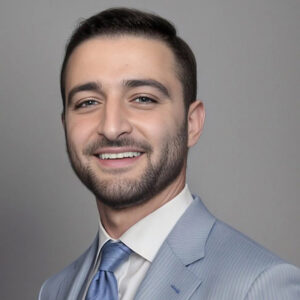Every time you go get an annual check-up, rush to the emergency room, or receive updates about your critically ill family member, there’s a good chance that the doctor providing you care wasn’t born in the United States.
In 2023, nearly 25% of all practicing physicians in the U.S. were international medical graduates (IMGs)—doctors who earned their medical degrees abroad. And among us physicians in residency or fellowship—who work grueling hours in hospitals as we complete our specialty training—27% of doctors have some form of immigration status.
These doctors aren’t just statistics. They are our colleagues, our friends, our neighbors, they are us. They’re among the most brilliant and hardworking people we work with. They care for our patients with skill and compassion. They provide high quality medical care during emergency surgeries, births, and when disaster strikes. They often do this with little recognition while facing incredible amounts of stress.
Many provide critical care in understaffed hospitals while living with precarious immigration statuses. Some are separated from their families due to travel restrictions. Others live in constant anxiety about visa renewals, green card backlogs, or political changes that could upend their lives overnight.
As a physician, we see the toll it takes. And the reality is that we can’t afford to lose a single one.
We are in the throes of a shortage that is only expected to decline. By 2036, we’re projected to be short by as many as 86,000 doctors, according to the Association of American Medical Colleges. That’s not just a statistic—that’s longer wait times, fewer primary care providers, and closed hospital departments, especially in rural and underserved communities.
Immigrant physicians are already the backbone of the healthcare safety net. They’re overrepresented in specialties and settings that struggle the most to recruit and retain providers—family medicine, internal medicine, psychiatry, emergency medicine. When we fail to protect these physicians, we also hurt the communities who rely on them.
The recent travel bans prevent dozens of doctors from coming to the U.S. Every time one of our peers is affected, thousands lose their care provider. What would it look like if we didn’t have a quarter of our doctors? This is not just a matter of justice—it’s a matter of public health.
As doctors and frontline workers, we are calling on Secretary of State Marco Rubio to act. We need an exception to the ban specifically for physicians. The State Department has the authority to ensure that doctors can continue their work.
Our patients deserve high quality medical care. They deserve consistent access to doctors who know them, who speak their language, who’ve earned their trust. And our colleagues—who have studied for years, trained tirelessly, and committed their lives to caring for others—deserve to do their jobs without fear.
These doctors aren’t just essential workers. They’re essential human beings. And for the sake of the collective health of this nation, it’s time we recognize that.
 Dr. Andrea Soto-López
Dr. Andrea Soto-López
Southern California Regional Vice President, CIR/SEIU
Internal Medicine/Pediatrics Resident Physician, Los Angeles General Medical Center/ University of Southern California
 Dr. Zaid Alrashid
Dr. Zaid Alrashid
Delegate, CIR/SEIU
Internal Medicine, University of Illinois Hospital and Clinics
muribe@cirseiu.org
_________________________________________________________________________________________________________________________
The views and opinions expressed in this article are those of the author and do not necessarily reflect the official policy or position of M•I•A MEDIA GROUP LLC. Any content provided by our contributors is their opinion and is not intended to malign any religion, ethnic group, club, organization, company, individual, or entity.






